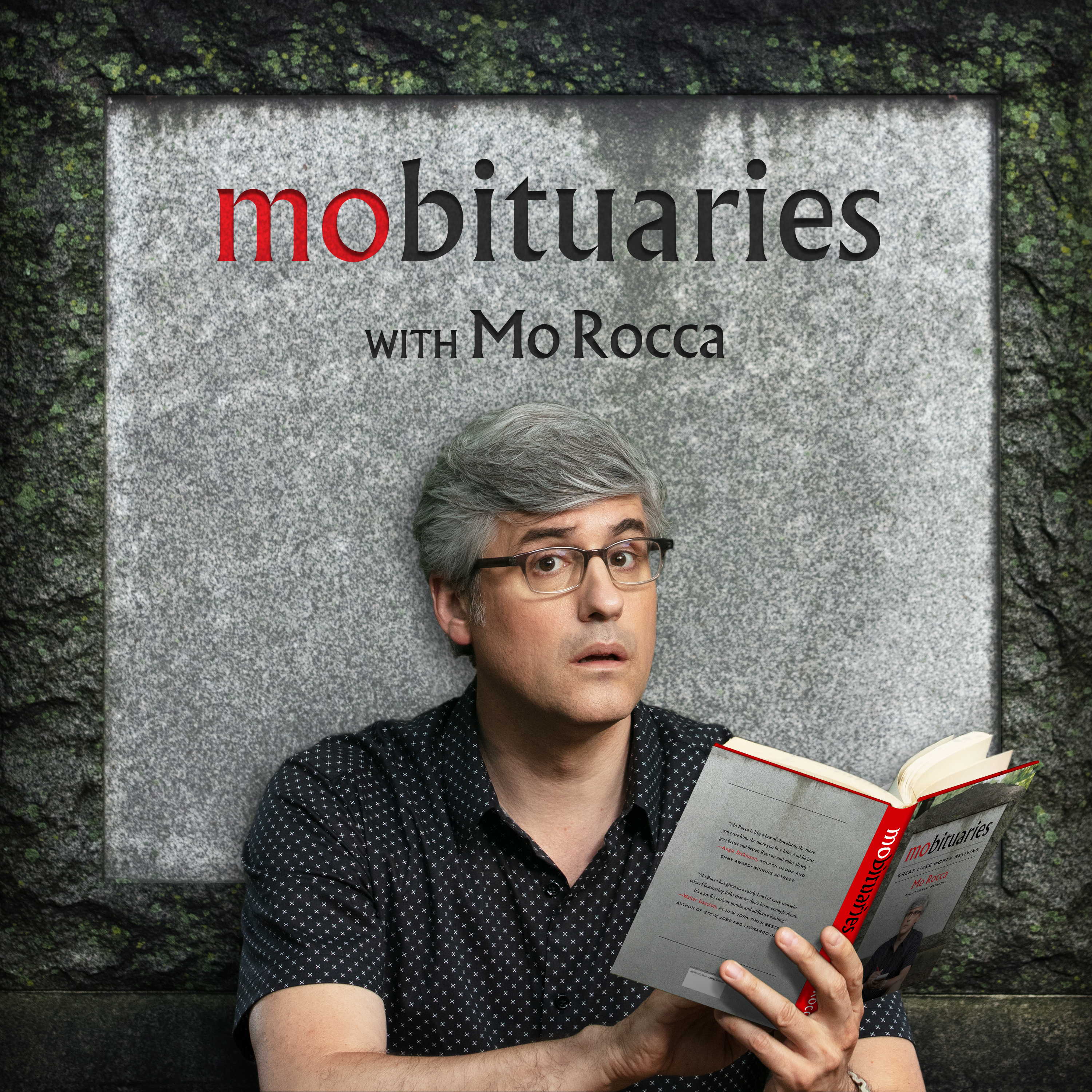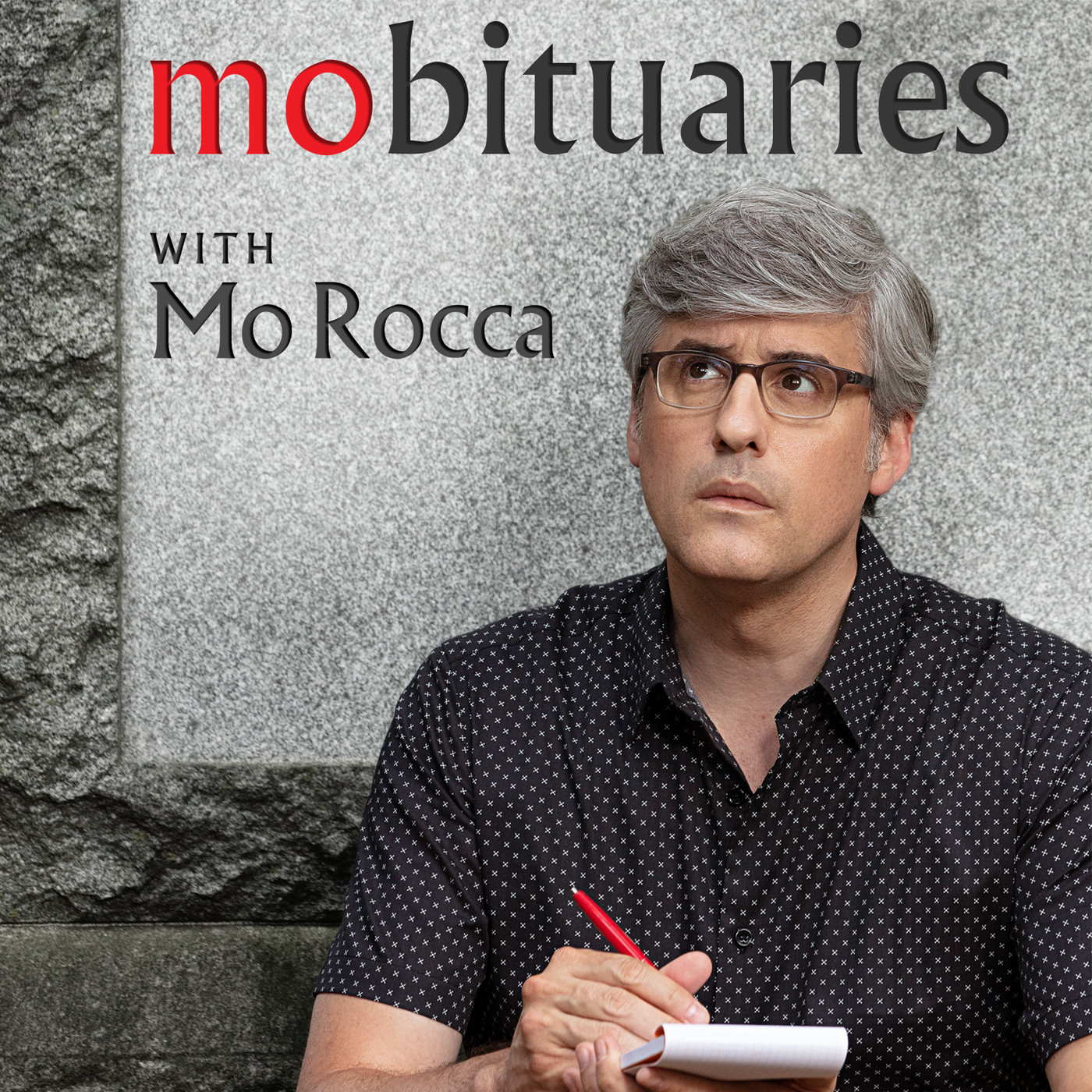Mobituaries with Mo Rocca
Mo Rocca has always loved obituaries. In season 1 of Mobituaries he introduces listeners to the people who have long intrigued him—from the 20th century’s greatest entertainer … to the Civil Rights pioneer who is completely forgotten … to sitcom characters gone all too soon. Even if you know the names, you’ve never understood why they matter…until now. And if you enjoy these episodes, look for more stories of great lives worth reliving when Mobituaries returns for season 2 in fall 2019.
For a few decades the station wagon was as central to the American Dream as the white picket fence and the basketball hoop in the driveway. It was the quintessential family car. And really, who didn’t want to ride in the “way back”? This special episode comes from the audiobook edition of MOBITUARIES. You can learn more here: http://bit.ly/MoAudio.
Anna May Wong wasn't supposed to be in the movies. Her laundryman father was dead set against it. And Hollywood preferred white actors in "yellow face" for Asian characters. But Wong knew what she wanted. With her talent, beauty and tenacity, she ran a gauntlet of social and legal obstacles to become Hollywood's very first Chinese-American star. Mo talks with comedian Margaret Cho, actress Rosalind Chao and best-selling author Lisa See about the woman who is finally getting her due.
In a Mobits first, Mo takes the show on the road! Mo shares his love of obituaries; investigates why we confuse certain dead celebrities; and interviews former New York Times obituary writer Margalit Fox about what it's like to write about the dead for a living. This episode was recorded in Asbury Park, NJ and Fairfield, CT.
Fred Armisen joins Mo to pay tribute to legendary bandleader and TV host, Lawrence Welk. Welk was another victim of television's Rural Purge of the early 1970s, when his long running musical variety show was canceled by ABC after his audience was deemed too old. But Welk did not go quietly. He defied the critics, bringing his show back to life on his own terms - and reaching an even wider audience.
In December of 1993, Laura Branigan called into Ernie Manouse's Chicago-based radio show and sang O Holy Night a capella. Technically the recording isn't perfect, but Laura's pitch is. And her spirit shines through. We thank Ernie, now an award-winning host with Houston Public Media, for allowing us to play it for you here. And we wish you all a Merry Christmas and Happy Holiday.
Between 1854 and 1929, 250,000 orphans - at peril in the dangerous, overcrowded streets of New York - were placed on trains and sent west to live with new families. A desperate solution to a desperate problem, some of the stories turned out well and some far from well. The bond between the riders lives on in their descendants, many of whom continue to search for answers about their ancestry. Mo talks to the daughter of a rider, plumbs the CBS News archives for voices of the riders themselves, and tracks down the last survivor.
The St. Louis Blues hockey team had the worst record in the NHL in January 2019, before deciding to adopt the 1982 hit song Gloria as their anthem. They ended up winning the Stanley Cup. But many of their fans didn't even know that the woman who sang that song had died back in 2004. Mo talks to Laura Branigan's brother, her high school best friend, songwriter Diane Warren (who wrote her first hit song for Branigan) and attends a reunion of fans to tell the poignant story of an undersung pop star whose voice lives on.
In the early 1970's, CBS axed its slate of hit country-themed sitcoms. The Beverly Hillbillies, Green Acres, and Petticoat Junction were just three of the shows that bought the farm. Mo talks to Linda Henning (star of Petticoat Junction), author Sara Eskridge and TV critic Alan Sepinwall about the sitcom slaughter.
During the 1870s, more than a dozen African American men, many of whom had been born into slavery, were elected to the U.S. Congress. These political pioneers symbolized the sky high hopes of millions of former slaves during the years right after the Civil War. It was a period that ended all too quickly. But it happened. Mo talks to Professor Henry Louis Gates, Reconstruction historian Eric Foner, and a descendant of one of the legendary lawmakers.
Thomas Paine wrote Common Sense, the pamphlet that inspired the American Revolution. So why did only six people show up at his funeral? Mo finds out why this essential Founding Father has never gotten his due - and, with the help of a Tony nominated Broadway songwriting team and The Daily Show's Lewis Black, stages a rollicking memorial service for Paine on the spot where he dropped dead.
Marlene Dietrich cemented her status as a Hollywood legend with a series of iconic performances that flouted traditional women's roles and ignited the screen. But it's her passionate support for the United States, her adopted homeland, and the troops fighting in World War II that led Hitler to label her a traitor to the "Fatherland." When she could have enjoyed the indulgences of fame, she risked everything. This special episode comes from the audiobook edition of MOBITUARIES. You can learn more here: http://bit.ly/MoAudio.
America has a long tradition of unruly presidential brothers, none more famous than Billy Carter. He became so well-known for his antics, there was even a brand of beer named for him. Mo speaks to President Jimmy Carter and Billy's widow and six children about the surprisingly complicated man behind the caricature.
CBS Sunday Morning correspondent and humorist Mo Rocca returns with more stories about the people and things that have long fascinated him and, yes, they’re all still dead. From the unruly presidential brother with his own beer to a 1980’s pop song that brought glory to a 2019 sports team, here’s a sneak peek at what to expect from the new season of Mobituaries.


